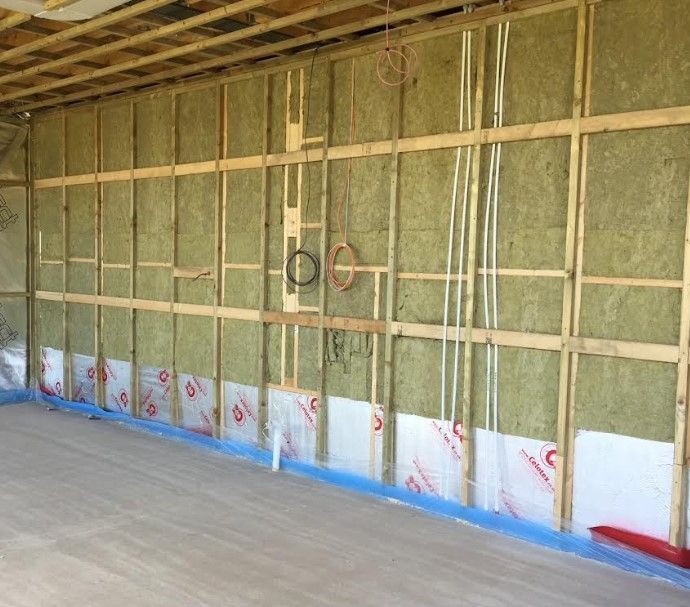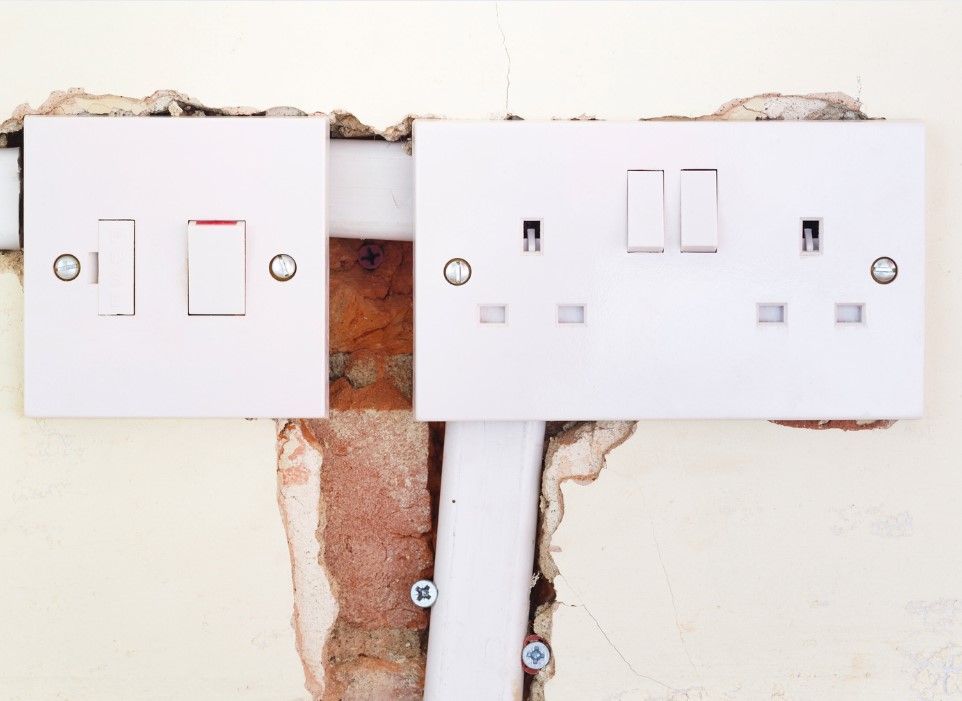REWIRING DERBY
REWIRING HOMES AND BUSINESSES ACROSS DERBYSHIRE
GET A QUICK REWIRING QUOTE
SEND 24/7
Rewiring enquiry
REWIRING SERVICES DERBY
Electrical rewiring is a crucial aspect of maintaining safe and efficient electrical systems in homes, offices, and commercial buildings. Over time, electrical wiring deteriorates, becomes outdated, or no longer meets the growing demand of modern appliances and technology. A full rewire ensures that electrical circuits remain safe, comply with legal regulations, and meet the energy needs of the building.
If through a survey you have had it identified that your house should really be rewired then simply get in touch with Derbyshire Electrical Specialists to get a quote. If you're not sure if you do or rather should have your home rewired, that's fine too. We can carry out some tests and advise on the stated of your wiring in terms of safety and also in terms of any limitations it may currently provide in terms of what type of appliances or number of appliances can be connected safely and will work effectively.
REWIRING NEAR ME
If you live in Derby or further afield in Derbyshire our rewiring service will be ideal for you you. So if you are looking for rewiring near me, simply get in touch!
HOUSE REWIRING DERBY
Before starting a rewiring project, our electrician will carry out an Electrical Installation Condition Report (EICR). The purpose of this is to evaluate the condition of the existing wiring. If issues like outdated materials (e.g., lead, rubber, or aluminium wiring), damaged insulation, or overloaded circuits are detected, a full or partial rewire may be required to ensure your home is safe and electrical performance is not compromised.
Once rewiring has been agreed the next step is to remove the existing electrical wiring. For a complete house rewire this will involve accessing walls, ceilings, and floors to extract old cables. Whilst we try to be as careful as possible there will be mess and damage to walls and potentially floors and ceilings depending on how the old wire has been run and connected through the building. We take care to avoid damaging any structural aspects of the house and this is unlikely to happen but there will be cosmetic damage. This is why many house rewiring projects are taken on board when following a house purchase of an alder property. If done as one of the first jobs then patching up afterwards form part of the decoration process and avoids having to re-do cosmetic touching up in the future.
With a full house rewire cables, new sockets, switches, and consumer units (fuse boxes) are installed. Current wiring standards will include:
- Ring circuits for sockets
- Lighting circuits with earth protection
- Dedicated circuits for high-energy appliances like ovens and electric showers
Your outdated fuse box will be replaced with a modern consumer unit fitted with Residual Current Devices (RCDs) and Miniature Circuit Breakers (MCBs), ensuring greater protection against electrical faults.
Once the rewiring is complete, our electrician performs a number of safety tests to ensure everything functions correctly. A certificate, such as an Electrical Installation Certificate (EIC), will be issued to confirm compliance with UK wiring regulations (BS 7671).
REWIRING SERVICES DERBY
During a full rewiring process, power will need to be turned off for several days or even a couple of weeks, depending on the scale of the project.
This can be disruptive, requiring temporary heat and lighting solutions or even alternative accommodation.
The process will create a lot of dust so please ensure that if you are leaving items in your house there are properly covered. It is likely that you will be decorating afterwards so the effort will not be wasted.
It is worth having a discussion about you plans following rewiring as our electricians can back fill the chases in the walls created by replacing wires. This can be an additional time consuming process waiting for plaster to dry and reapplying after shrinkage. If you are having your walls replastered anyway as part of your decoration and renovation process then our electrician will be able to save time, and there therefore save you money, if the final flush wall finishing is done by the pasterer.
LOCAL REWIRING SPECIALISTS
If you live in Derby or further afield in Derbyshire we bring our service to you. So if you are looking for boiler installation near me, we're ideal!
COMMERICIAL REWIRING DERBY
Rewiring in commercial and office settings involves additional complexities compared to residential properties. The scale, regulatory requirements, and usage patterns differ significantly. Commercial buildings often have larger electrical loads due to numerous computers, industrial equipment, and HVAC systems.
They will have multiple circuits, and three-phase power supplies are commonly required, unlike the standard single-phase supply in homes.
Whilst residential homes typically use ring main circuits and radial lighting circuits, offices and commercial buildings may use busbar trunking systems, structured cabling for networking, and dedicated circuits for IT equipment. Emergency lighting, fire alarm systems, and backup power systems are required in commercial environments, most of which aren't in residential homes.
Domestic wiring follows BS 7671 Wiring Regulations and Part P of the Building Regulations, for commercial properties must comply with Health and Safety at Work Act, Electricity at Work Regulations 1989, and fire safety laws.
OFFICE REWIRING DERBY
Rewiring a house, depending on the size and amount being rewired can often be completed in few days or a couple of weeks maximum. It is not uncommon for the occupants to relocate in temporary accommodation whilst the work is being carried out until they know that they can access heat and light back in their own home.
However, office and commercial rewiring must be scheduled to minimise business disruption. This means that on office rewiring project needs more planning to ensure business continuation can function as much as practically possible, often requiring night shift work or phased installations. Office rewiring often involves upgrading to allow energy-efficient lighting systems, power factor correction, and load balancing to be introduced to reduce operational costs. Office and commercial buildings require fire-resistant cables, surge protection, and electrical risk assessments to protect staff and assets. Rewiring for smart building technology, including automated lighting and occupancy sensors, is also commonly integrated into office rewiring projects.
MOST COMMON REWIRING QUESTIONS:
REWIRING DERBYSHIRE
At Derbyshire Electrical Specialists, we are committed to providing superior rewiring services in Derby and the surrounding areas of Derbyshire. With our experienced team of electricians we can provide objective guidance rewiring needs and implications. We aim to exceed your expectations and create a home or business meeting or exceeding current standard allowing you run modern and control modern appliances and smart systems easily and efficiently. Contact us today to schedule a free consultation to assess your rewiring requirements.
Derbyshire Electrical Specialists provide rewiring services in:
Ilkeston, Long Eaton, Swadlincote, Heanor, Ripley, Belper, South Normanton, Somercotes, Matlock, Sandiacre, Clay Cross, Ashbourne, Alfreton, Hilton, Breaston





